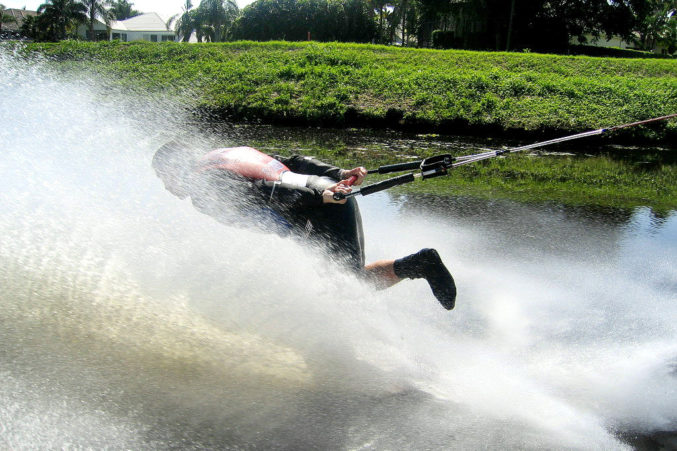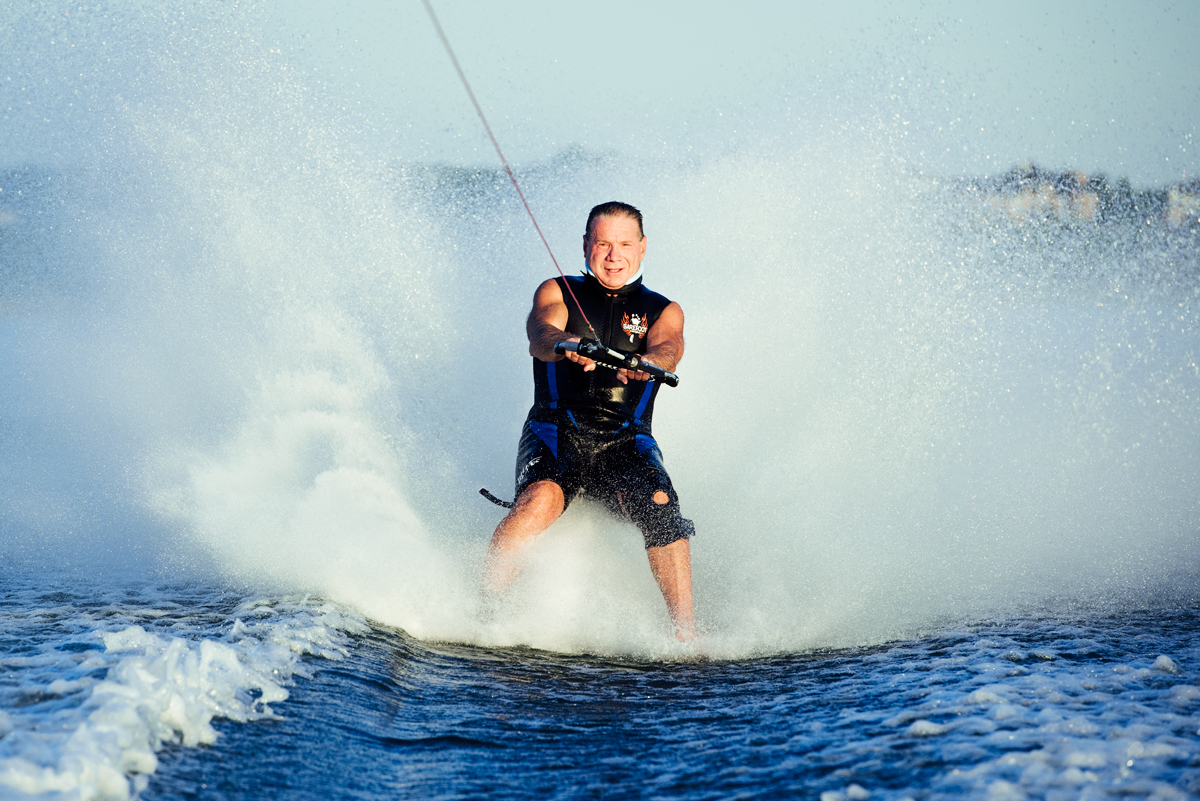When he was in his mid-30s, architect Warren Wilke was working on a remodeling project in Irvine, Calif., when his client invited him to go boating. The client jumped into the waters of Lake Nacimiento to go skiing—without skis. Wilke became intrigued by the sport, and the next time the opportunity came up, he decided to give barefoot skiing a try himself. Despite his natural athleticism, “I got the snot beat out of me,” Wilke says. The grueling first experience did not discourage him, though, and barefoot skiing remains his passion today.
“You’re not always going to be the winner, and you need to know that.”
Warren Wilke, Architect
A fourth-generation Californian, Wilke has been interested in design for as long as he can remember. He completed his first set of working drawings for a home as a sophomore in high school. His father, an architect, and his mother, an interior designer, influenced his career path. He moved to Dallas about 24 years ago, and today, the 68-year-old Wilke is a nationally known architect and urban planner with GSR Andrade and Warren S. Wilke & Associates.
In California, he designed a home for entertainer Kenny Loggins. (Actor Jeff Bridges now owns the estate.) North Texas projects include Savannah and Providence (masterplanned developments for Huffines Communities), Echo (a 200-unit apartment complex for The NRG Group), and Adriatica (Jeff Blackard’s McKinney development that’s modeled after a Croatian fishing village). He also designed a Highland Park home for Donald Huffines that features an all-granite façade.

Barefoot skiing, Wilke says, is a thrilling and exhilarating way to escape his detailed work. “I sit at a desk all day,” he says. “I can go from my desk and be out on the water, and it’s still and calm in the water. Then, in a split second, I’m doing one of the most dynamic things you can do.”
He has won numerous awards for his barefoot skiing prowess, including first place at the South Central Regional Championships (three times) and a third-place finish at nationals. Wilke also has skied the Dam2Dam race, a 21-mile relay from Lake Austin to Lake Travis, for the last 16 years, and recently won. His winning team spanned three generations, as it included his grandson and ex-son-in-law. “You take off and you go head to head—it’s a drag race,” Wilke says. “It’s whoever can last the longest because whoever can last the longest will have the best water. If you fall, you’ve got to stop and go back to pick up the skier. If you fall, you’re dealing with the wakes of the other boats. Skiing with wakes is really grueling.”
His passion for the sport (and other athletic endeavors) has come at a cost—namely, a whopping 41 surgeries, including the “Tommy John” ligament surgery. (Wilke was second in line, following the baseball player for whom the surgery is named.) Once, after completing what he believed was the best run of his life on Lake Brazos, Wilke let go of the rope as he was skiing backwards. His foot slid, and he attempted to brace the fall with his arm, hitting the water at 40 mph. “I broke my elbow in four places,” he says. “I dislocated it. I broke my humerus in half. I tore all the muscles off from the elbow. I tore my rotator cuff and bicep tendon. My doctor thought it was a compound fracture when he saw the X-rays. He said I was close to losing my arm.”
A year later, Wilke had regained strength in his arm. He was able to do 20 pull-ups, 60 push-ups, and swim a mile on his 60th birthday. Encouraged, he took up barefoot skiing again. “That was probably the biggest challenge that I have overcome.”
Barefoot skiing, and sports overall, have taught Wilke valuable lessons that he’s able to apply to his career. Focus is the key to success in both, he says. “If you’re going to excel at what you’re doing, it’s where you set your mind that will determine where you go,” he says. “Sports teach you how to compete—and how to lose graciously. You’re not always going to be the winner, and you need to know that.”







